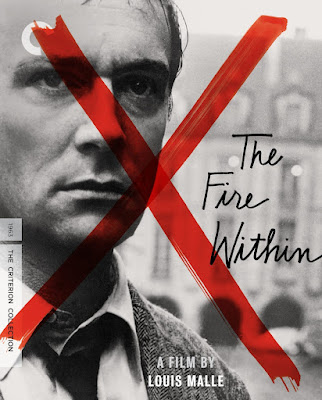Louis Malle – The Fire Within (1963)
A Man at the Edge of the End
A woman and a man lie in bed. They smoke. They talk. They move to the bathroom. The man has to leave soon. They talk. The woman continues:
"You need a woman who won’t let you out of her sight. Otherwise, you’ll get depressed and act foolishly."
Louis Malle’s The Fire Within (Le Feu Follet), based on the novel by Pierre Drieu La Rochelle, follows Alain Leroy—a once-celebrated socialite and partygoer, now broken and isolated. Having checked himself into an alcoholism treatment clinic, he is finally discharged after four months. Freedom awaits—though he hardly welcomes it.
Right away, it’s worth pointing out how sharp and perceptive the screenplay is. I assume La Rochelle contributed to it, because the film is packed with cutting, darkly poetic one-liners. The dialogue oscillates between stark, cynical observations and confessions dipped in self-loathing.
"It’s not feelings of anxiety, doctor. It’s a single feeling: constant anxiety."
Maurice Ronet delivers a haunting performance as Alain, a man caught in an existential snare. He’s a wreck in slow motion—drifting somewhere between resignation and fragile clarity. His choices seem deliberate, yet everything around him is softening, crumbling under the weight of meaninglessness.
The brilliance of this film lies in its refusal to moralize or simplify. The themes—self-deception, disconnection, emotional numbness—are never black and white. Malle and La Rochelle understand that complexity deeply.
"The sensitivity was in my heart, not in my hands."
The film moves with the same disorientation that lives inside its protagonist. It explores, often irrationally, the nature of despair and the way we distance ourselves from others—and from ourselves. It’s not a film of plot but of perception, and in that sense, it’s devastatingly honest.
With its sharp script, subtle direction, and unforgettable lead performance, The Fire Within stands as a quiet masterpiece about a man who has lost the will to lie to himself.

Comments
Post a Comment